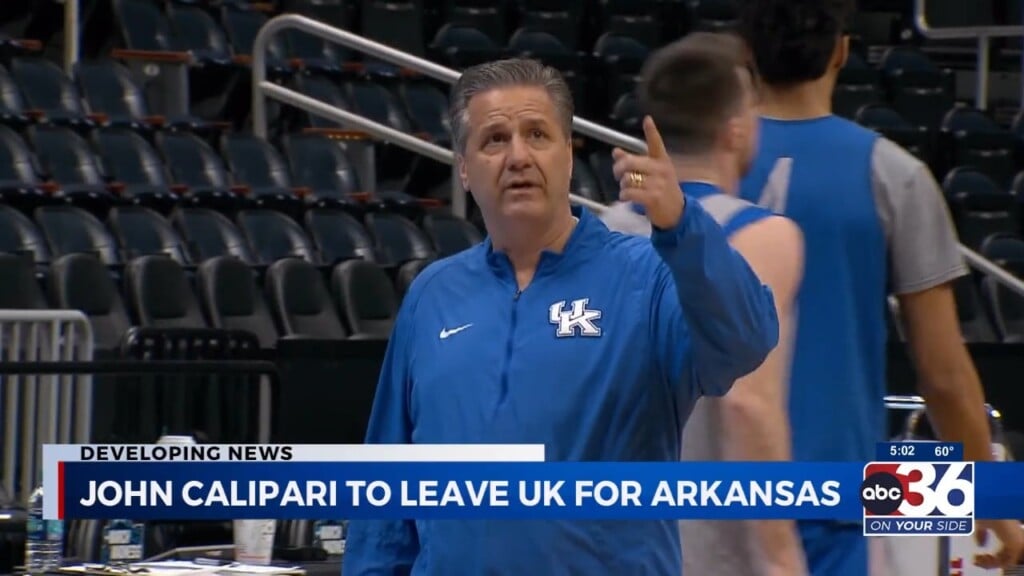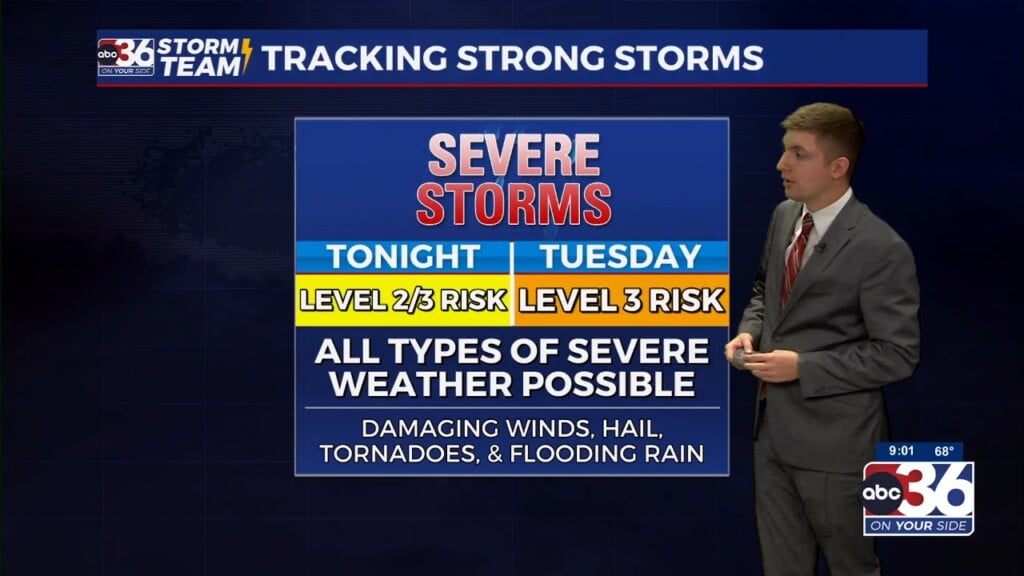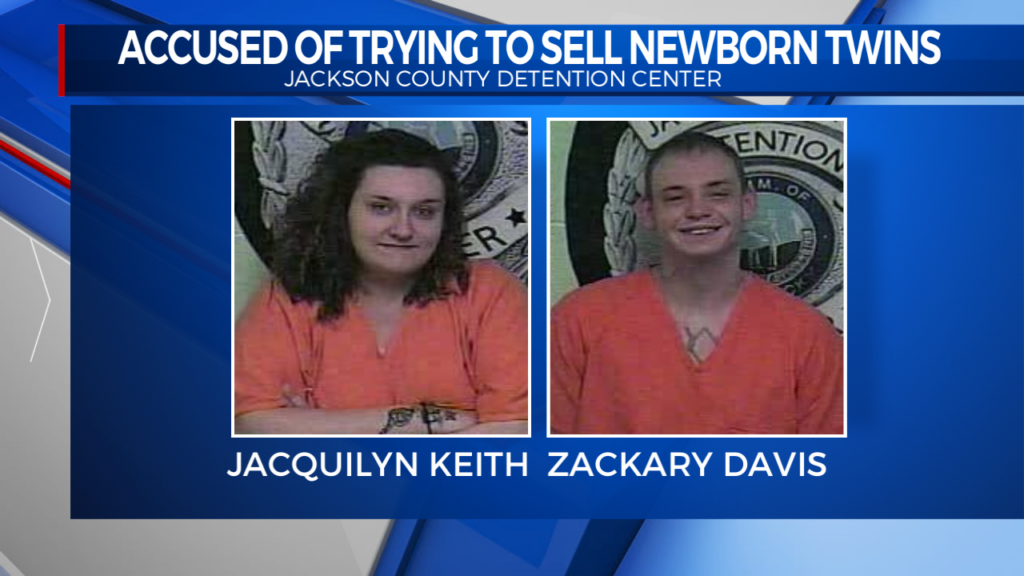Lexington researchers look for RSV vaccine volunteers, disease much like COVID
LEXINGTON, Ky. (WTVQ/Press Release) – – The Alliance for Multispecialty Research (AMR) – Lexington, a leading clinical research company that attracted national attention for conducting the first community-based phase one COVID-19 vaccine trial, has been awarded Adult RSV (Respiratory Syncytial Virus) vaccine clinical research studies.
In advance of the cold and flu season, AMR Lexington, formerly Central Kentucky Research Associates, is now enrolling study volunteers — adults 60 years and older — to participate in the phase three RSV vaccine clinical trials.
“Unfortunately, most people don’t know about RSV and how this highly contagious respiratory virus can be deadly for adults 60 and older,” said AMR Lexington Principal Investigator Dr. Mark Adams. “With the COVID-19 pandemic, we see how fast deadly viruses can spread — particularly among senior communities and multi-generational families. Pursuing an adult RSV vaccine is the next critical step for public health.”
In fact, the CDC recently issued an RSV Health Advisory to notify clinicians and caregivers about increased RSV cases in the U.S. with particular concern for the most vulnerable, including the elderly and infants/toddlers.
Pediatricians have known about RSV in children for decades, but the virus has flown under the radar for doctors caring for senior adults.
While RSV causes mild cold-like symptoms in healthy adults who recover in a week or two, RSV infections in adults 60 and over can become life-threatening — particularly if the virus enters the lower respiratory tract, making it difficult to breathe.
- An estimated 6 million adults 65 and older annually contract RSV, according to a report from the National Foundation for Infectious Diseases.
- An estimated 177,000 older adults are hospitalized — and approximately 14,000 die each year in the U.S. alone due to an RSV infection, according to the CDC.
- RSV statistics for older adults are widely considered to be significantly higher. When an older or high-risk patient is admitted to the hospital for respiratory insufficiency, some doctors test for RSV, but a majority do not.
- Physicians often don’t recognize the difference between RSV and the flu, coding patient records with influenza or pneumonia.
Similar to the coronavirus, RSV is a fast-spreading virus that transmits through respiratory droplets when an infected person coughs or sneezes and droplets enter the eyes, nose or mouth of a healthy person. Unlike the coronavirus, RSV can remain infectious on hard surfaces for up to six hours.
Currently, there is no commercially available RSV vaccine.
“With a growing adult population, AMR recognizes the urgent need for an RSV vaccine to prevent hospitalization and death in older adults,” said Dr. Adams.
Adults ages 60 and older are at greater risk for severe RSV, largely due to the gradual deterioration of the immune system due to aging. Known as immunosenescence, even the most active older adults have a weakened immune system as a consequence of aging.
The risk for RSV in older adults is expected to increase. By 2050, the number of Americans 65+ is expected to nearly double, from 46 million to almost 90 million. RSV risk is compounded by the nearly 60 percent of grandparents and older relatives who participate in caring for children under 13 years old, according to the National Association of Childcare Resource & Referral Agencies. Children who are frequently exposed to RSV in school and childcare facilities can transmit RSV to their older caretakers.
People with underlying health conditions also are at increased risk for RSV. The virus can exacerbate chronic medical conditions, including:
| o Asthma | o Cystic fibrosis |
| o Chronic obstructive pulmonary disease (COPD) | o Heart disease |
| o Chronic bronchitis/emphysema | o Lung disease |
| o Congestive heart failure | o Sleep apnea |
People with immunodeficiency — such as organ transplant recipients, chemotherapy patients or HIV/AIDS patients — are also at risk for severe RSV infections.
Among adults 65 and older, 85 percent have at least one chronic medical condition; 68 percent have two or more, according to the National Council on Aging. More than 16.4 million people have COPD, the third leading cause of death by disease in the U.S. according to the American Lung Association.
“For people with chronic medical conditions, there is a profound probability that an RSV infection will exacerbate their condition,” said Dr. Adams. “With no specific RSV treatment available, doctors can only provide supportive care which may include intubation. This is why our clinical research trials for a vaccine to prevent RSV are critical.”
While continuing COVID-19 and other medical research studies, AMR will begin its RSV adult vaccine clinical trials this summer in advance of cold and flu season to maximize data collection. With the success of phase 1 and 2, the investigational RSV vaccine has been approved as safe to begin the large-scale phase 3 vaccine research — becoming one of AMR’s largest volunteer clinical trials.
Adults ages 60 and older who qualify for AMR’s RSV vaccine study will receive, at no cost, study-related medical exams, lab work and an investigational RSV vaccine or placebo. Insurance is not required; compensation may be available for time and travel.
To inquire about becoming an RSV study volunteer, contact 1-888-259-1231 or visit www.AMRLLC.com/open
“We simply cannot help save lives without the heroic participation of healthy clinical research volunteers,” added Dr. Adams. “Volunteers are key to our success to find vaccines to protect and save lives — including their own.”
Founded in 1994 as a network of clinical research sites, Alliance for Multispecialty Research (AMR) consolidated in 2017 and operates across the United States in 14 research centers.




Leave a Reply